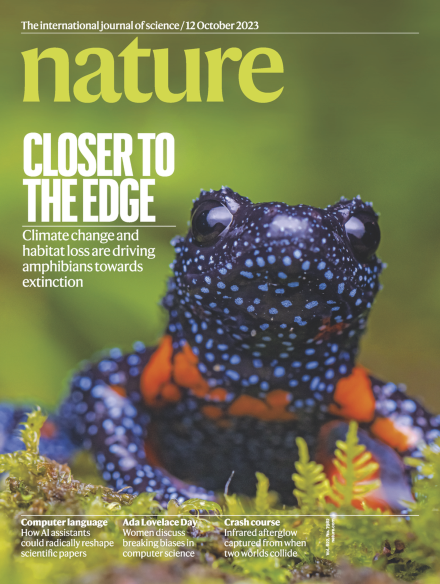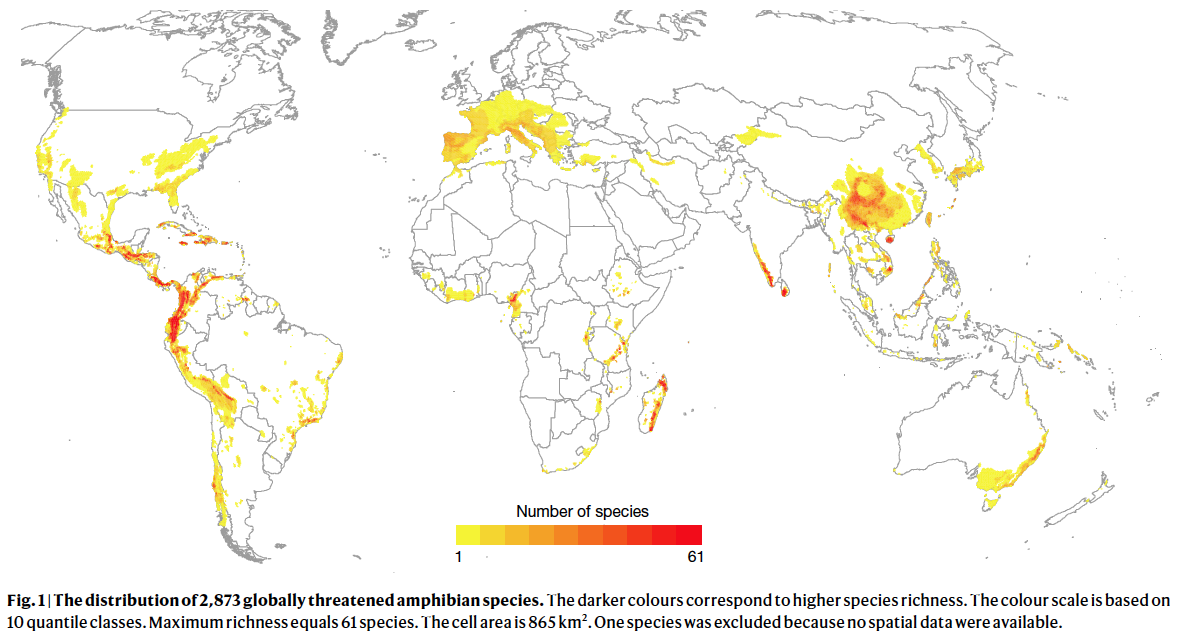Thais has been working with a team of more than a hundred specialists in a comprehensive re-evaluation of the conservation status of amphibians worldwide. After assessing the extinction risk for all 8,011 known amphibian species, we have found that amphibians are still in trouble, being the most threatened group of vertebrates in the world. We found that 2 out of every 5 amphibians are threatened with extinction, and the primary drivers for this are climate change and habitat loss. Our paper shows that salamanders are the most threatened amphibians globally, which is especially concerning because of the emergence of a pathogenic fungus in Europe that can be lethal to these organisms. We must prevent the spread of this pathogen across the Americas, which is home to the most biodiverse community of salamanders in the world. Conservationists will use the information from this study to inform actions at the local level and identify opportunities for broader collaborations focused on recovering amphibians and communicating their ecological importance.
Article Title: Ongoing declines for the world's amphibians in the face of emerging threats
To read the article, please click on Nature
This article was also written about in Reuters, to read the article by Will Dunham, please click Reuters
This month's copy of the International journal of Science: Nature
Photo Credit: Thais Condez
A red-backed salamander from the Ottawa area, Summer 2023
Map credit: Thais Condez
This map shows the distribution of threatened species around the world